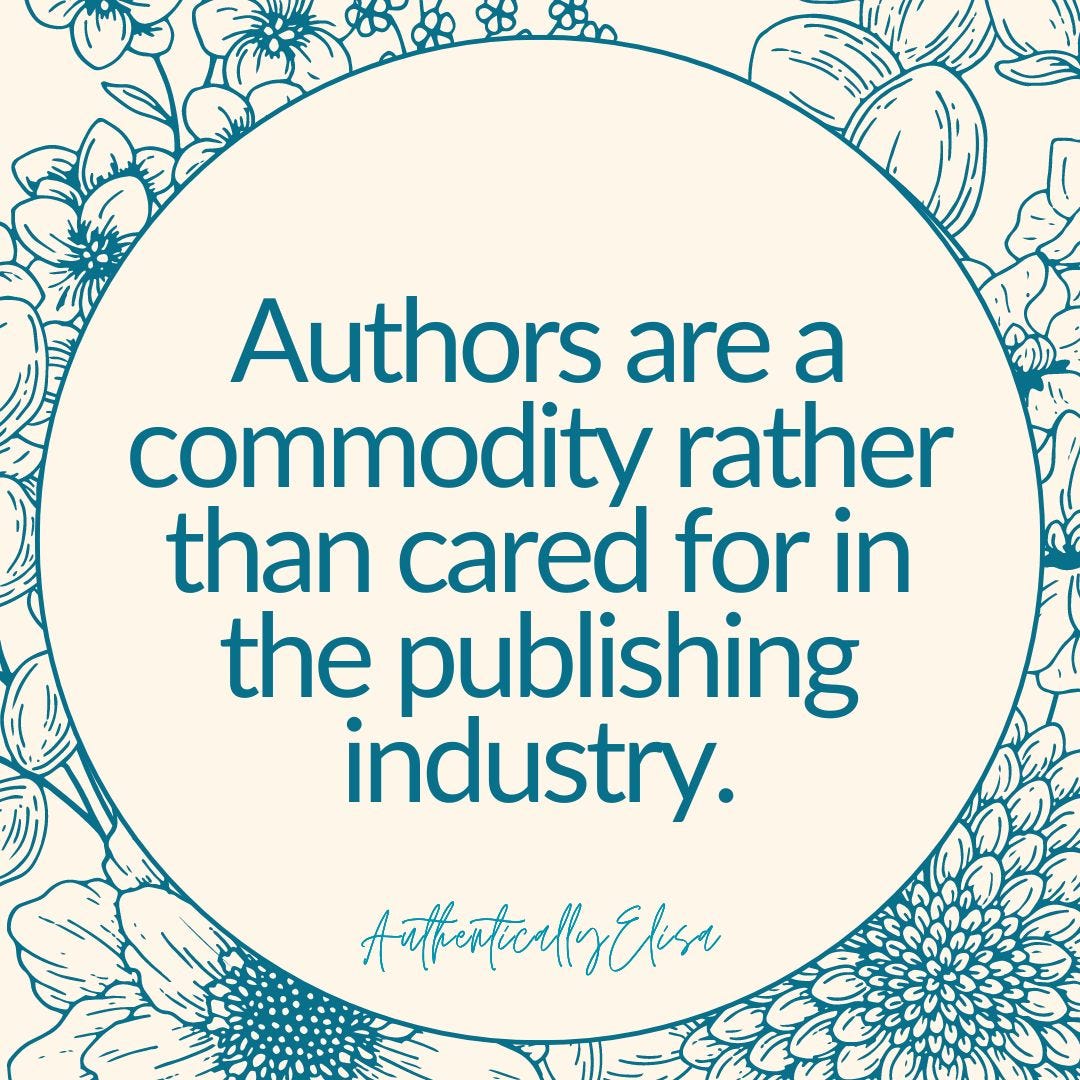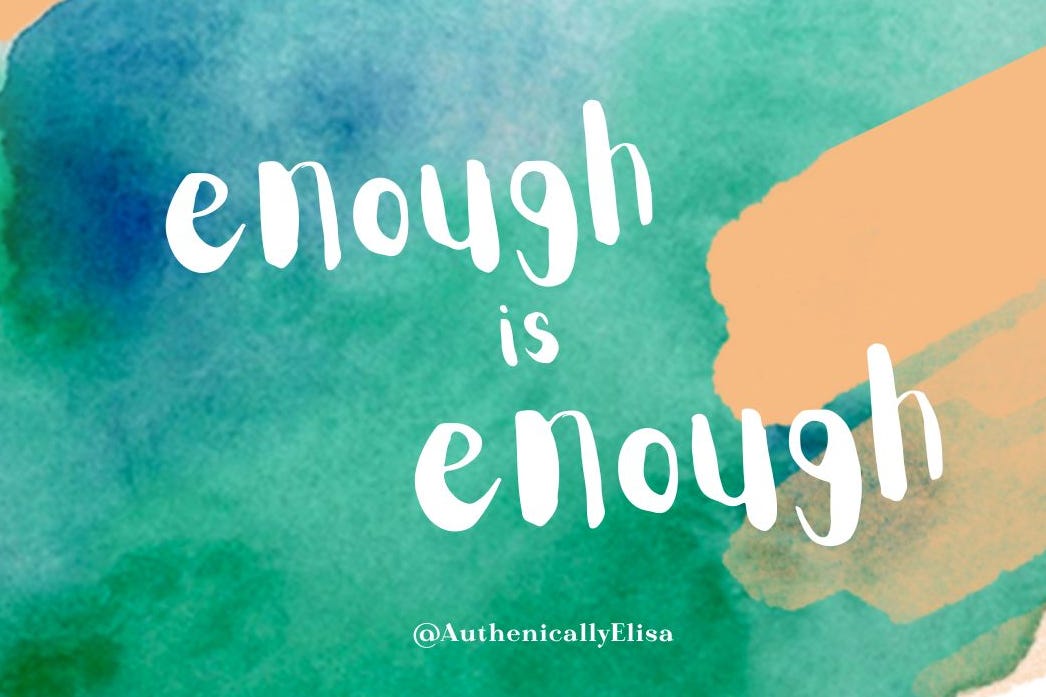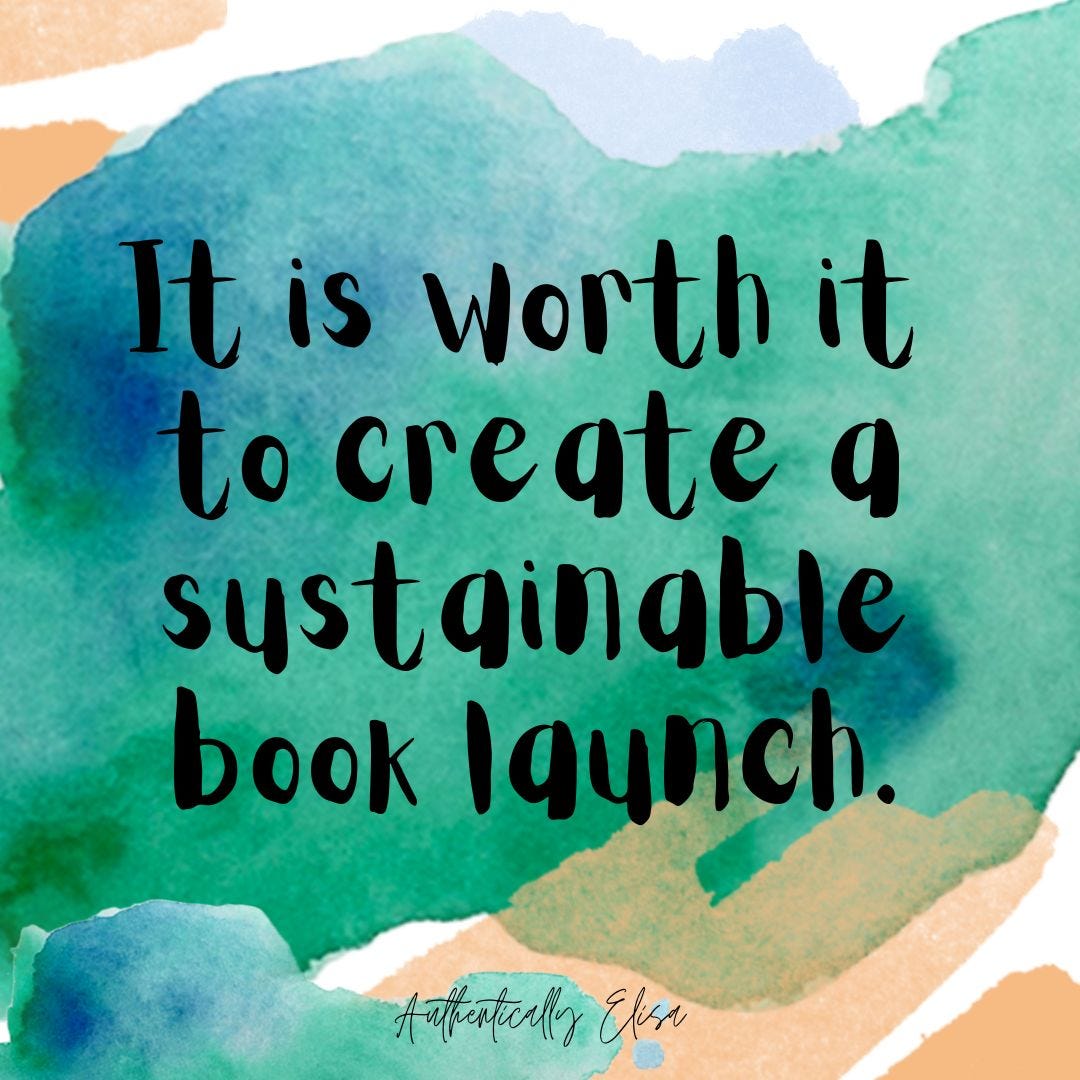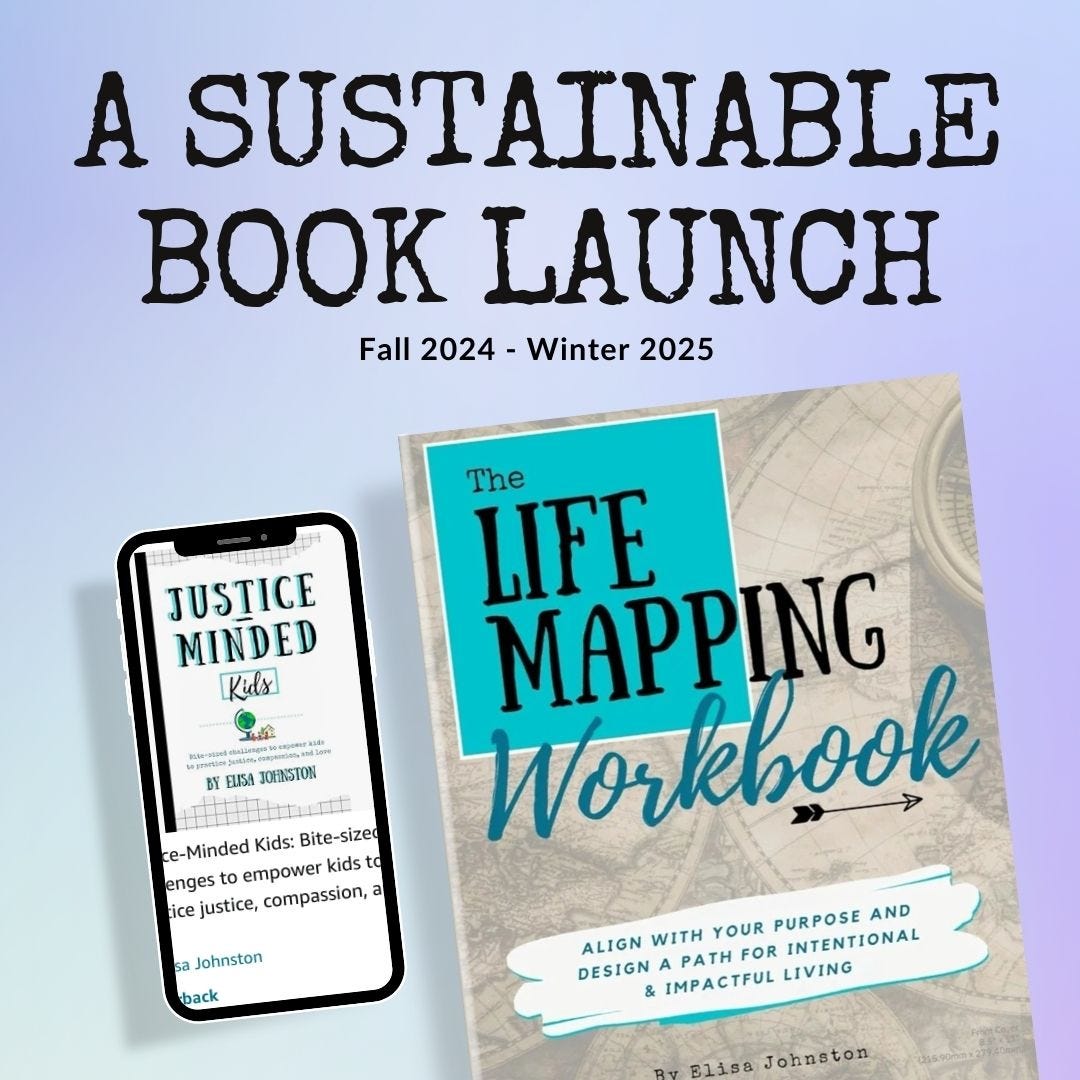Hosting a Sustainable Book Launch
The principal's office, hurried capitalism, and unethical publishing expectations
Last week I did a bold thing. I confidently sauntered into the office of my son’s school where dropped off a copy of Justice-Minded Kids with a note for the school principal.
I should note that she scares the crap out of me.
I’ve known this principal for nine years and yet most of our interactions are perfunctory at best. Yet, despite our years of circling around each other’s periphery—she still has no clue who I am when I walk by—I’ve had in-depth conversations with her both on email and in person about plenty of topics. Thankfully, as many of our values align, half of these conversations have led to positive change in the school.
My hesitancy in interacting with her probably has something to do with her infamy for plowing people over. Despite the room she gives for parental discussion and feedback (which to her credit, she does) we all know that she will have the final say. As a recovering people-pleaser myself, I find myself intimidated by the directness and challenge of this high Enneagram 8, even while valuing what she can get done.
I was never sent to the principal’s office as a child. (Well, there was that one time where I bit a kid and the principal met us on the playground, but that was rightfully ruled self-defense.) In fact, I viewed myself as beloved to the school administration, pridefully flaunting the privilege of being a teacher’s kid.
Considering, my fear of this principal seems ironic.
Authorities
Maybe I’ve just been intimidated by authorities who pave an expected path and define a culture.1 Anytime I held one of these roles I’ve felt the burden of this power.
Today I want to talk about the authority of the industries we function within. Explicitly, how the good ol’ system of glorious capitalism can harm us.2 The example I will use is book publishing, through which I will invite you into a dream of living outside these accepted norms.
Backstory
If you read this post at the beginning of summer, Lived Experience and Launching What Matters, you might recall I was publishing two books over the summer. But I determined I would not launch these how authors are supposed to. I couldn’t. I didn’t have the bandwidth. And I’m fed up with the ridiculous expectations the book industry uses to lassos its authors.
As of this point, my dream to traditionally publish is currently deferred. (Here is that story—a little relationship trauma included.) However, this process taught me how to write butt-kicking proposals, pitch to and write for large publications, understand the traditional publishing system, and finally, to self-publish. To help others with their message, marketing, and book launches, I even became a certified writers coach through this process.
Here on the other side of “becoming an author” my dreams have changed.
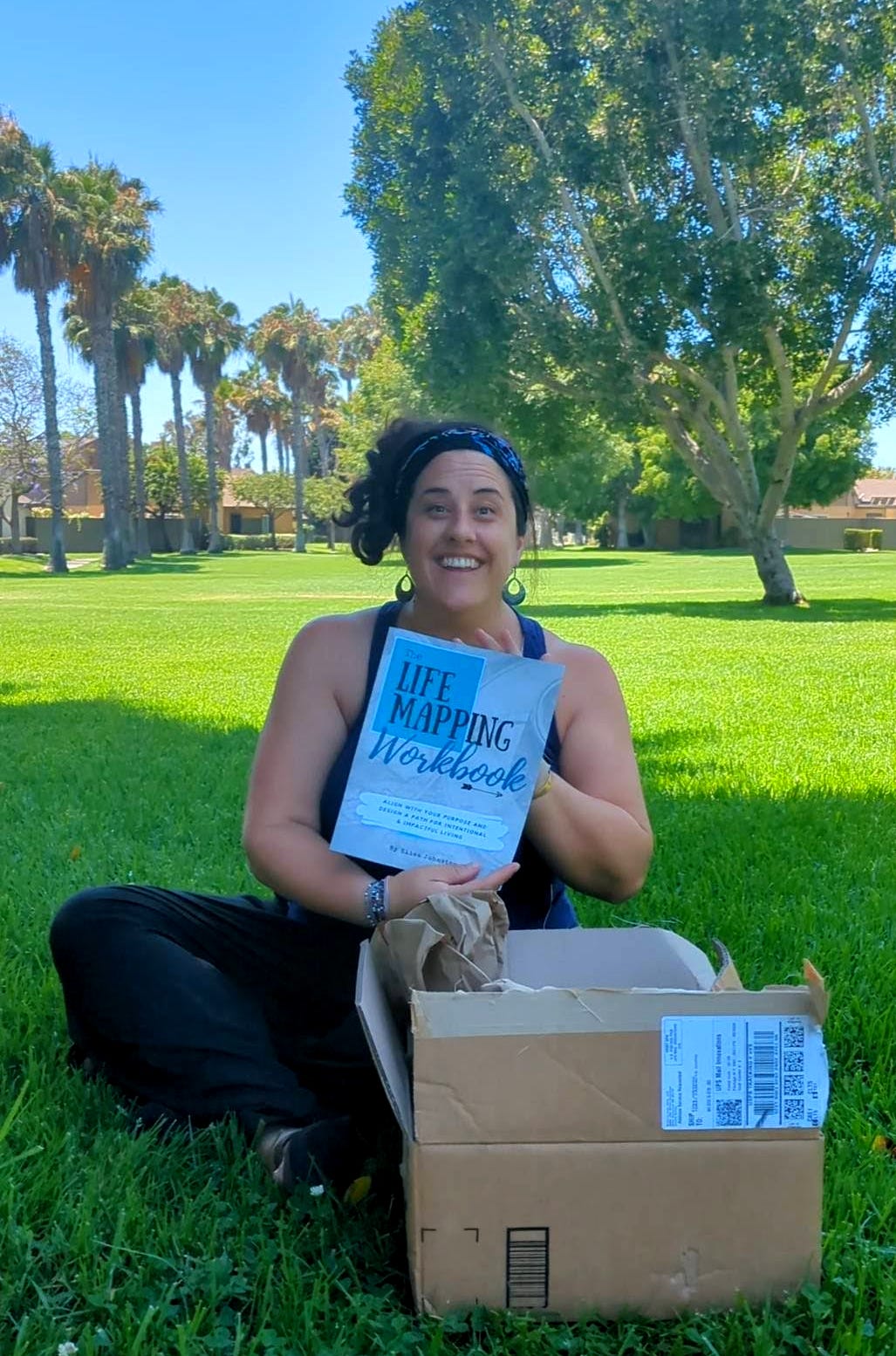
A New Dream (Thanks, Homeschoolers)
As I walked into the principal’s office to drop off a copy of my book, I ran into three homeschooling co-op teachers who also operate out of the same school. I worked with this marvelous team during COVID. They coached me as I guided my kids through a terrible year.
We exchanged short pleasantries and then they looked at me expectantly.
Confession: I wasn’t actually confidently sauntering into the principal’s office. I was slinking. As such, I felt the need to address why I was awkwardly sneaking into the principal’s office after hours while hiding something behind my back.
Holding Justice-Minded Kids out to show them, I unsophisticatedly tripped through an explanation.
Thankfully, they exclaimed in excitement about my accomplishment. I briefly described the purpose of Justice-Minded Kids to equip parents and teachers. Immediately they offered to set up a table for me, with my book, flyers, and a QR code to purchase it at their homeschool conference. Then they walked away.
What just happened?
A new dream, that’s what.
An Author’s Dream (a Cheesy Poem)
I dream of a launch
That unfolds like a dream
Without agonizing
Without posturing
A bench I’m sitting on
Where comrades join me
Without cajoling
Without exploiting
A swell that breaks
Borne by the sea
Not fulfilled
By this
Limited
Author,
Me
(Regardless of the industry, I think not striving eventually becomes the fantasy.)
Is Industry Unethical?
What makes an industry unethical? The definition of “unethical” is vague at best. Essentially, it means something is morally wrong. Even if we share a common standard, many of us have different beliefs about what is wrong.
It is easier to discern what is wrong by instead asking what is morally right about the industries we are part of. So we ask, what is good? What is just, righteous, wise, kind, peace-giving, and loving about the industry we are in?
As I do this, I see a serious problem with capitalism. Humans aren’t needed unless they are used—used to buy, sell, produce, or design a product or service. The essence of “what is good” requires people to be valued, seen, and loved. But these are entirely unnecessary for industry to function.
Capitalism is a system that values people secondary to the profit it makes.
Going back to my example of the book industry, this is why in the publishing world authors are typically a commodity rather than cared for. Publishers take calculated risks on these authors. Once they are “in,” the expectations run high. To make money they need the author to sell their books and the cost is the author’s wellbeing.
The publishing industry’s equation goes like this:
An author + marketing = increased sales.
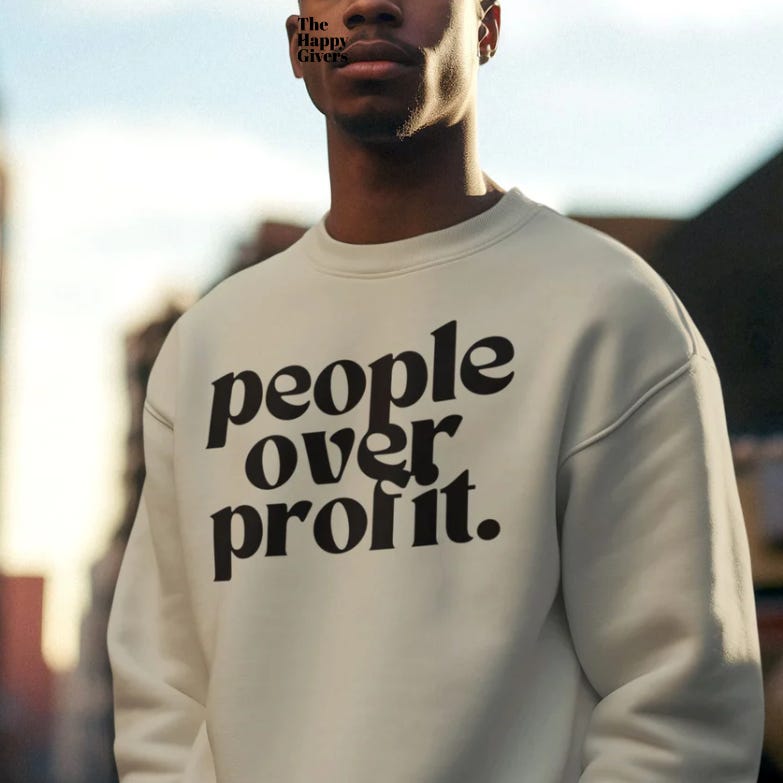
The Gate of Entry For Publishing
This past week I was coaching a long-time author who had been published by one of the big five publishing houses before the turn of the century. Her books had been reviewed by top sources and she is working on a movie contract.
One of the reasons I am coaching her is to help her in her marketing. After chatting for awhile she surmised, “If I tried to become an author now, I probably wouldn’t be published.” I found her insight profound as I grapple with the fact that I’ve had agents tell me that although they love my work, unless I can mosey-up 100K+ followers, they aren’t interested in representing me.
Going back to our questions: is this good? Is this just, righteous, wise, kind, peace-giving, and loving? Regardless of how you’d answer this, it makes sense that this isn’t a new discussion for most writers. It is the gate of entry every writer runs up against in the publishing industry.3
(I refer to quite a few different articles from much more prominent authors about the sustainability and ethicality of the publishing industry in the footnotes of this article).
What I don’t see talked about is how this industry culture affects authors who are past the entry gate and in the process of being published (whether traditionally, self, or hybrid). How does the book industry influence our book launches?
Are Book Launch Expectations Ethical?
With my coaching hat on, the first questions I’d ask a potential author is to determine whether the work of writing and publishing a book is a worthy investment of their time, including whether they can financially sustain themselves as they write. But the second set of questions are also vital—to evaluate the toll of a book launch.
What we invest in significantly impacts our lives. In industry, there are upfront costs, time, energy. There are sacrifices for our families. Our mental, physical, and spiritual health is affected. Are these worth it?
Is it unethical to lead someone down a path with a high cost without providing full disclosure? I think so. In publishing, not only is there low clarity about the return of investment, but there can be a lack of understanding about the whole process. The cost can be too high to pay.
Many top-level, culture-creating, industry-authority decisions are wrong for the people they are meant to serve because they aren’t actually meant to serve the people—we just thought they were. Although free enterprise can be used to empower individuals, the DNA of commercialism is not naturally imbued with a value for humanity.
The Story of an Author
Most authors find themselves in one of these boxes:
Traditionally published authors are trapped. They are obligated by contract to do their part, even if they didn’t really know what they were committing to at the time. Typically, they make this commitment two years before the launch, when a contract is signed! They might be in a totally different place in life by the time their book launch rolls around. And yet, to a large degree, they just have to roll with the punches.
Then, as so much pressure is put on the initial book launch, they often drop-out and/or stop trying to market their books over the following months and years. They might feel anxious that if they can’t meet the industry expectations they won’t be able to keep their agent and/or publisher. This is a huge weight to live under.
On the other hand, self-published authors work hard to assimilate into the industry standards. They are trying to follow the known path to success. Although significant portions of guidance they find works for the benefit of the book industry, they become overwhelmed as they try to sort through it alone. This either results in the author shutting down, not marketing, and consequentially feeling like a failure, or alternatively, over-performing in their book launch. Others burn-out as they desperately seek the validation of the publishing world.
(Hybrid published authors are a combination of the above)
Enough is Enough
But this is always the bane of capitalism. It doesn’t matter what the commodity is—a book, service, cause, or personal brand. As long as our success requires us to prove and validate ourselves, the industry makes demands that will always ask everything and all of us.
Profit is a hard taskmaster; it kills, steals, and destroys.
At least, until we declare that enough is enough.
How Authors Respond
I think for many authors, traditional book launches are wrong. I’ve only been coaching writers for a few years, but in this time I’ve observed authors respond to their book launches in the following ways:
Excited and also shockingly unaware of how much time, energy, and work would be required of them
Completely clueless and feeling surprised that they weren’t given a launch plan
Appalled by the impossibility of book launch examples they were given by their publisher
Frustrated because they thought they would have more support from the publisher
Spinning their wheels, putting time and energy into marketing elements that were not fruitful for them
Depressed because everything went wrong with their launch and they feel there is no way for them to recover
Insecure because they feel expected to become an influencer (as if that was easy)
Burnt-out from doing things that weren’t in their wheelhouse, preventing them from using their writing gift
It is one thing if an author wants to learn how to market, has the capacity and bandwidth, enjoys the process, and/or is positioned to be an influencer. But many writers do not want these, nor can they do them.
Even if they write great books.
The Way It Should Be
Maybe I am just too optimistic; too hopeful.
I long for a world where people—and authors—are believed to be worthy and valuable because they are, not because of what they produce. And I dream of a world where people—and authors—can survive without having to strive, prove, and claw their way to the surface.
No wonder I want the culture of the publishing industry to change.
No wonder I want to go against the grain for my own book launch.
My Sustainable Book Launch
I'm trying to practice a sustainable book launch. As I shared here, this experiment feels very counter-intuitive to all the launches I’ve previously directed for my non-profit or coached other authors with.
What does “a sustainable book launch” mean to me? For me, this meant my goal hasn’t been to sell thousands of books in their release weeks. I’ve already pushed this book launch off for over four months. I developed it not based on what I should do, but on what I can practically do over the next six months.
I want to be at peace with what I give. I want to try my best without sacrificing myself or my family to capitalism. I simply want to honor God and the work that I’ve done, regardless of how many books I sell, and regardless of whom I am or I am not validated by. This removes unrealistic pressure off of me. My spirit, my body, and my mental health don’t need industry expectations that, like breaking waves, frequently knock authors over only to bury them in the sand.
Also, I didn’t want to demand of others what they can’t give. I wanted others—you—to feel like you can give to this book launch out of generosity, not from obligation. And I wanted you to have time to do it, for your support months from now (or even years from now) is just as valuable to me as it would be if you gave it this week.
My only hope is to get these books to their ideal audience—those who'd be encouraged and supported by them.4
This is what I keep telling myself: "It is worth it to me and the people I serve to create a sustainable book launch."
Choosing this path is good. It allows room to consider what justice and righteousness looks like within it. A sustainable product/service launch is wise, kind, peace-giving, and loving. Pursuing sustainability is good for all creators—whether we are writers, product designers, inventors, podcasters, speakers, artisans, painters, musicians, entrepreneurs, or ministry/nonprofit founders.
We don’t have to be hurried. We can go against the flow.
It is worth it to us all to launch our work and our vision sustainably.
Principal’s Office:
The day after I dropped off Justice-Minded Kids at the principal’s office, I got this short but sweet email:
Hi Elisa,
I came in this morning to find your book on my desk. How lovely that you wrote this. You must be so proud. I am placing your book in my newly established parent library.
I hope it will help many families. I appreciate your generosity. Additionally, I will let the vice principal and the teachers know that you are an expert on book publishing, authoring and social justice. Perhaps you can be a guest speaker for a project.
- Gratefully
I felt relief and excitement. But I also felt it was proof that I didn’t have to follow the traditional book launch standard to get my books to their intended audience. What if my whole book launch was this easy, without striving?5
New Dream
Calling the expectations of the publishing complex unethical requires me to grapple with my courage. I am holding my head high and bravely walking forward to do something contrary to industry standards—and I am publicly doing so on purpose!
I might as well be stomping back into the principal’s office.
I am fueled by my new dreams. First, I dream of finding book launch partners without striving or losing my peace. Then I dream of being an example of alternative paths for others approaching their own creative launches. Even bigger, I dream that my tiny book launch can act as a catalyst! I hope it starts a discussion that shifts the book publishing culture to value people over their profit. I even dream of sharing at conferences about how we can go against the status quo of industry for our own and our society’s wellbeing.
Is that too much to dream?
I think not.
My sustainable book launch might only be an experiment. But through it, I still expect to be standing confidentially at its conclusion, having sold a book or two. And I hope that it will inspire others to declare “enough is enough” and go against the grain and to more sustainably launch their work.
If you are interested in joining my book launch team, go here. (“Official” invite to follow tomorrow.)
Find previous posts by visiting authenticallyelisa.substack.com
Follow me on Instagram here @AuthenticallyElisa and here @AverageAdvocate
Visit my Patheos column: Flourishing Faith and Justice
Amazingly, after writing this I had a weird supernatural moment where I realized this fear was a “stronghold” in my life. I shared it (confessed), stated that I didn’t want it to be me anymore (renounced it), and these friends prayed with me. It was a burden lifted off of me. For the last five years since recognizing it, I’ve been busy fighting it. But I was still calling it part of my identity—instead of saying nope, not me, not anymore. Now I align with this new, not scared of authority Elisa.
I find it intriguing that the majority of us don’t hold capitalism in contempt. Although many of us have/will be hurt in church systems by those in power, it is a given that all of us are being hurt under capitalism. Do this mean we don’t trust capitalism, like we do the faith community? That we already assumed it would be bad, but the Church, good? Or is this a sign that we are totally unaware that the system of capitalism harms us?
I should point out, the entry bar has been lowered significantly since 2020 for authors who were previously unseen, diverse authors. And although sometimes I feel like all the agents are now dedicated to diverse voices, that isn’t true. The reality is simply that now we are all in the running, vs. just white voices. This is a good thing.
This might not be you!
I wrote a whole different section about not striving, seeking God first, and wrestling with the axiom, “do you best and let God do the rest.” But, this article is already soooo long. Maybe another time.





